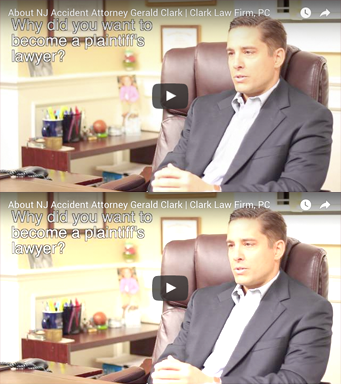Should I Sue for My Injury in Small Claims Court?
For a variety of reasons, it is unlikely that Small Claims is the appropriate place to sue for your injury, as it is likely that only a small amount will be recovered.
Small Claims court is a special division of civil court where you may sue to collect money that you believe is owed to you. The procedures in this court are simpler than in other courts, so a case can be presented and resolved quickly and inexpensively. While it might be worthwhile to reach a quick resolution, it is important to remember that in Small Claims Court in New Jersey, you cannot sue for more than $3,000 (or $5,000 if the lawsuit is related to the return of a security deposit). If you decide to sue in Small Claims, you cannot sue again in a different lawsuit for money over that limit. You only get one chance to try to get the money owed for your injury. The total cost of filing a complaint is $35 for one defendant, $5 for each additional defendant, plus $7 for each defendant served by mail. If you disagree with the judgment, you have the right to appeal within 45 days, which requires a filing fee of $250 and a deposit of $300 (which is refunded to you if your claim is successful).
It is important to note that even if you spend the money to sue in Small Claims, there is the chance that you will not recover any of the money owed you. If this happens, you will be unable to sue again in a different lawsuit. Many plaintiffs (person who brings a case against someone) choose to represent themselves in Small Claims. While this may be a cost-effective decision because of the limited amount of money that can be recovered, filing a case without a lawyer’s assistance can lead to a variety of problems. You will risk filing forms improperly, and you will be navigating an unfamiliar and potentially complicated process. The court will not give you special help or attention, and you will not be advised of possible legal complications or nuances that may be unique to your case. If the defendant (person against whom the suit is being brought) decides to hire a lawyer for the proceeding, you will be disadvantaged from the choice to represent yourself.
Small Claims Court in New Jersey does not involve a jury, which could affect the outcome of your case. Juries are instructed to compensate plaintiffs for injuries that disrupt normal, everyday activities, as well as the distress that those injuries caused. Juries take into account the seriousness of the injury and the impact it has on the victim’s life, and the jury has a large amount of discretion in determining what amount of money can fairly compensate a plaintiff. Since Small Claims does not have a jury and the limit is fairly low, the amount of money, if any, received from filing in Small Claims might be significantly less than it would be if a jury is involved.
Small Claims does not hear complaints arising from professional malpractice, support or alimony, or from a probate matter (such as issues with a will).
An alternative to filing in Small Claims in New Jersey is filing your case in Special Civil Part, where you can sue for up to $15,000. Just like in Small Claims, complaints regarding professional malpractice, support or alimony, or from probate matters are ineligible to be filed in Special Civil Part. The process for filing a complaint here is slightly more complicated than in Small Claims. Depending on the amount the plaintiff is seeking to recover, the cost for filing a complaint is either $50 or $75, and an additional $100 is required if a jury is requested. After the complaint is filed, the defendant has 35 days in which to file an answer in writing, at which point a trial date will be scheduled. If the defendant chooses not to answer the complaint, then the Court will enter a default and after six months, the plaintiff can file to obtain the judgment by default. This is how the court decides the amount of money to be awarded to a plaintiff.
If the defendant answers the complaint, there will be a trade of written information between the two parties, called interrogatories. These are a list of questions that must be answered within 30 days, and can be helpful in determining the strengths and weaknesses of your case. On the day of trial, the court may attempt to mediate with a neutral third party and settle the case. If a mutually satisfactory agreement is not reached, the trial will probably be heard that day, in which case all witnesses and evidence must be available to be presented to the court.
Since the procedure involved in Special Civil Part can become complicated, it would probably be helpful to hire a lawyer to handle your case. A lawyer would be helpful to navigate the complexities, and since the limit for the amount that can be recovered is higher, it would probably be a good investment. Further, since a jury can be requested in Special Civil Part, the chances of recovery for a sympathetic plaintiff are better than they would be in Small Claims.
If you have suffered severe injuries and believe you are owed more than $15,000, the only appropriate place to file your case is in the Civil Part of the Law Division of the Superior Court, N.J.
If your injury is minimal and you are not seeking a large amount of money to recover, then Small Claims is an appropriate place to sue for your injury. Otherwise, Special Civil Part is a more attractive option, as the recovery limit is much higher and there is more flexibility in how the case is handled.

